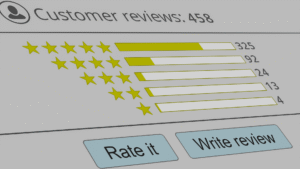In the digital marketing landscape, search marketing continues to be an essential tool that businesses use to reach and engage their target audiences. It encompasses several strategies, including Search Engine Optimization (SEO), Pay-Per-Click (PPC) advertising, and data analytics. By understanding and effectively leveraging these strategies, businesses can significantly increase their online visibility, attract more traffic, and ultimately drive more conversions. This article delves into the core components of search marketing – SEO and PPC, and explores how businesses can enhance their search marketing strategy through data analytics.
Understanding the Core Components: SEO and PPC in Search Marketing
SEO and PPC are the two main pillars of search marketing. SEO is a long-term strategy that involves optimizing a website to rank higher on search engine results pages (SERPs). It includes various tactics such as keyword optimization, link building, and creating high-quality, relevant content. The goal is to attract organic traffic, which refers to visitors who find a website through unpaid search results. SEO is crucial because the majority of online experiences begin with a search engine, and users are more likely to click on the top five suggestions on the SERPs.
On the other hand, PPC is a paid advertising model where advertisers pay a fee each time their ad is clicked. It’s a way of buying visits to your site, rather than attempting to earn those visits organically. The most popular form of PPC is search engine advertising, where advertisers bid for ad placement in a search engine’s sponsored links. While PPC can be more costly than SEO, it offers the advantage of immediate visibility on the SERPs. It’s particularly effective for businesses that want to generate quick results or promote time-sensitive offers.
The key to a successful search marketing strategy is to use SEO and PPC in conjunction. While SEO takes time to yield results, PPC can provide immediate visibility and drive traffic to your website. On the other hand, the organic traffic generated through SEO can help reduce the cost of PPC campaigns over time. Moreover, the insights gained from PPC campaigns, such as which keywords are driving the most traffic, can be used to inform and improve your SEO strategy.
Leveraging Data Analytics: Enhancing Search Marketing Strategy
Data analytics plays a crucial role in enhancing search marketing strategy. It involves collecting, analyzing, and interpreting data to gain insights into user behavior, market trends, and the performance of your marketing efforts. This information can be used to make informed decisions, refine your strategy, and improve your return on investment (ROI).
One of the key applications of data analytics in search marketing is keyword analysis. By analyzing the keywords that are driving the most traffic to your website, you can identify opportunities to optimize your content and improve your SEO performance. Similarly, you can use data analytics to track the performance of your PPC campaigns, identify which ads are generating the most clicks, and determine the cost-effectiveness of your bids.
Another crucial aspect of data analytics is user behavior analysis. By understanding how users interact with your website, you can identify areas of improvement to enhance user experience and increase conversions. For instance, if your data shows that users are leaving your website after visiting a specific page, you might need to optimize that page to make it more engaging or relevant. Additionally, data analytics can help you understand your audience better, enabling you to create more targeted and effective marketing campaigns.
In conclusion, SEO and PPC are the core components of search marketing, each offering unique advantages. While SEO is a long-term strategy that focuses on attracting organic traffic, PPC is a quick and effective way to gain immediate visibility on the SERPs. However, the key to a successful search marketing strategy lies in combining these two tactics and leveraging data analytics to make informed decisions and refine your approach. By understanding and effectively leveraging these strategies, businesses can significantly enhance their online visibility, attract more traffic, and ultimately drive more conversions.
















